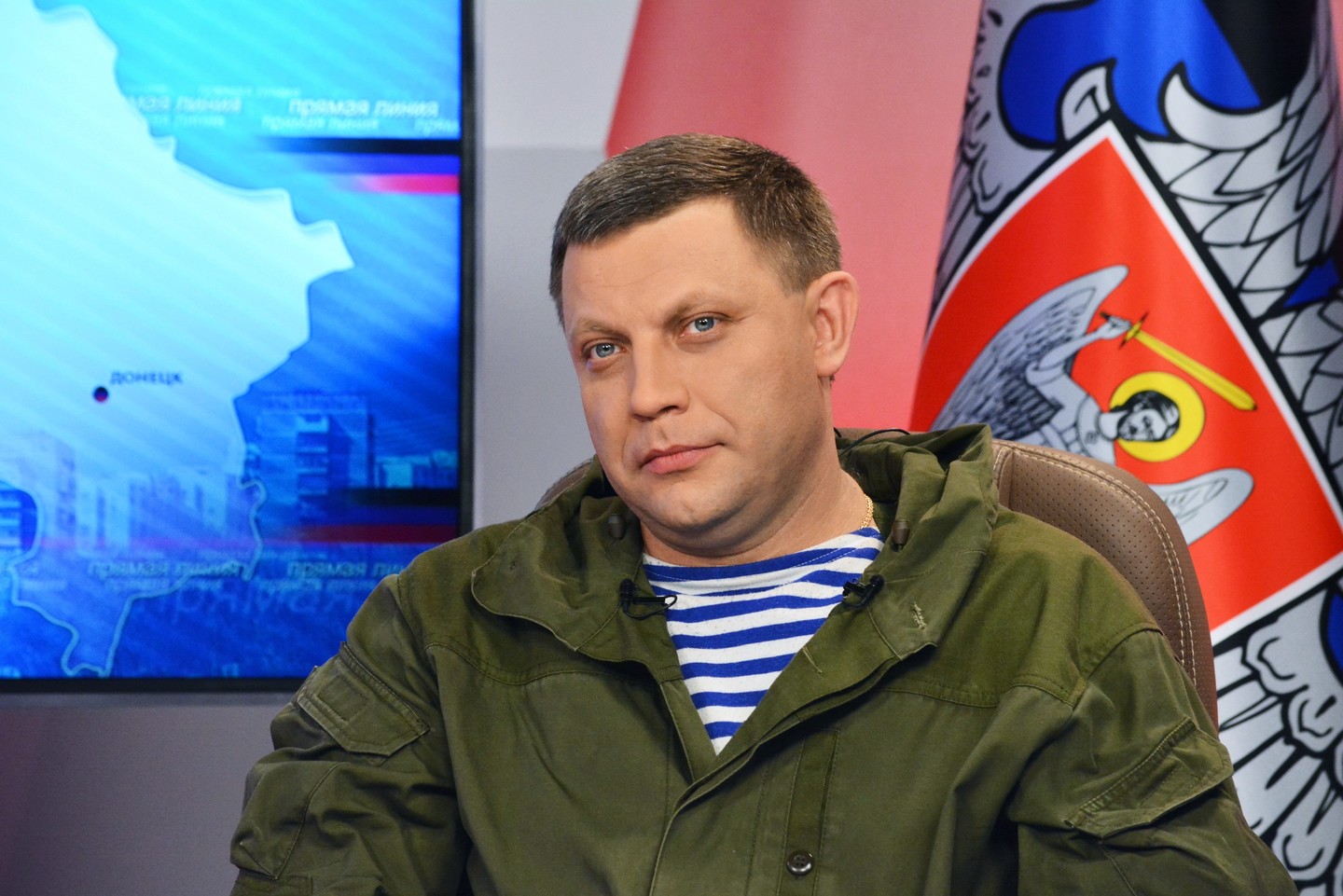By Alexander Maslov
The leader of the DPR, Alexander Zakharchenko, publicly refused plans for the reorganization of the Ukrainian state under the name of «Malorossia» («Little Russia») as it ‘causes rejection by many’.
The head of the Donetsk People's Republic did not explain who these mysterious «many» were, but there is no doubt that, among them, there are primarily our Western «partners», for whom «Ukraine» is a kind of «sacred cow». Or rather, given some gastronomic aspects, a «sacred pig» of the almost religious cult of Russophobia, which they have already professed for centuries and whose «faith symbol» was literally defined the other day by the editor-in-chief of the British Economist, Edward Lucas, in an interview with The Times.
‘Russian economy is based on undeserved income from the extraction and sale of natural resources’.
Let’s bear in mind in the situation around «Malorossia», two these seemingly unrelated moments: the name «Ukraine» and the control over natural resources. Then we recall that Alexander Zakharchenko announced his «Malorossian» initiative on July 18; while on July 26, on the eve of voting in the US Congress on new anti-Russian sanctions, it was reported that it was ‘only a proposal requiring discussion’, and on August 9th, it was announced that the initiative of Malorossia was ‘fruitful but untimely’.
Move in the «Great Game»
It should be noted that this happened just the day after the recent talks in Manila between the Russian and US foreign policy chiefs, Sergey Lavrov and Rex Tillerson, one of the results of which should be the announced, albeit not officially, meeting between Kurt Volker and Vladislav Surkov. Earlier, it was Victoria Nuland who had met with the presidential aide on the Ukrainian problem.
The answer to the question who stands «higher» - the deputy secretary of state for Eastern Europe (Nuland) or the special representative for Ukraine (Volcker) - will, of course, be in favor of the latter, since he represents practically all American «branches of power» and is not accountable to the Secretary of State.
In other words, official Washington raises the «Ukrainian» bets. As well as anti-Russian ones on the whole. What does Moscow answer?
The rejection of the concept of «Malorossia», as well as Russia's vote in the UN Security Council in favor of sanctions against the Northern Korea, are undoubted signals to Washington that the normalization of relations with the United States is considered possible and desirable in Moscow. However, all previous experience shows that signals of this kind are perceived by our American «partners» as a manifestation of weakness and usually lead to stricter negotiating positions. Russia, on the contrary, has softened its positions.
Yet, formally nothing terrible has happened. It's just that both (relatively weak but quite real as having unquestionable historical and legal grounds) political alternatives to «Ukraine» - «Novorossia» and «Malorossia» are now actually played, and the return to these positions is not possible.
This can mean only one thing, namely, the confirmation of the historical legitimacy of «Ukraine» as a Catholic, basically, project. It's the same as Croatia in the Balkans. The «Croatian» project was just directed against Serbia, while the «Ukrainian» one is directed against Russia.
Shall we throw pearls before the pigs?
If, at least, a part of the territories that became part of the state called «Ukraine» after 1991, were legitimized under the name «Novorossia» or «Malorossia», then it is clear that these new states could, firstly, question all decisions of the «Ukrainian» authorities for all the years of existence of the «Independent». And secondly, including in its name the name of Russia, «New» or «Little», thus acting as a part of Russia, they could, in fact, delegate to Moscow the right of the sovereign over these territories and their natural resources.
Let’s remember, what a cry was raised in the West, when the People's Republics of Donbass had nationalized industrial enterprises on the territory under their control. Exactly the same, or even higher, cry was raised after the announcement of the «Malorossia» project. The reason for that was that, as a result, all the property decisions of the «government of Ukraine» after 1991 in the territories included in «Malorossia», could be canceled as legally void.
But if the authorities, even the new ones, declared themselves the legal successors and right-holders of the authorities of «Ukraine», they would have to recognize ALL property decisions of Kravchuk, Kuchma, Yushchenko, Yanukovych, Poroshenko and Co. And this, even on the purely Ukrainian scale, is real assets worth hundreds of billions (in current prices, taking into account the «phiatic multiplier», this figure can be multiplied by 25-30) dollars.
This is the gift that Moscow has offered to its Western «partners». Is it justified or will it eventually end up as described in the famous evangelical parable ‘Do not give holy things to the dogs and do not throw your pearls before the pigs, so that they not trample them under their feet and turn around and tear you to pieces’ (Mt.7: 6), even if they are «rabid dogs» from America and «sacred pigs» from Ukraine?
Soon, we will find out. In the meantime, it is clear that Moscow is not just showing the royal generosity to the overseas ruler, under whom the throne is shaking. It intends, one way or another, to get its full.






